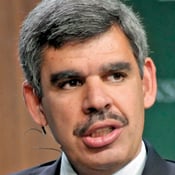President Barack Obama's tax deal will not meet its key objective of generating durable jobs unless it's part of a broader policy push.
President Barack Obama made a very important policy announcement Monday while also noting that it was “not perfect.” If approved by Congress, which is likely, its impact will be felt both inside and outside the U.S. Still, the key objective -- to generate durable jobs -- will be possible only if this is part of a broader policy push.
After protracted negotiations that crossed party lines, Obama explained his willingness to maintain for two years the Bush tax cuts for all income brackets, extend federal unemployment insurance, cut payroll taxes by 2 percentage points for one year and reduce other taxes.
The accord is important in three ways. First, it shows that America's unemployment problem is finally at the top of Washington's legislative agenda. Second, the measures take some pressure off the Federal Reserve, which has been pushed into unusual activism and policy experimentation to combat unemployment that remains stuck at almost 10 percent. Third, it signals that political compromises are possible in a city that has been characterized by massive polarization and fragmentation.
While important, the package is a product of political compromise that is far from perfect. Its limitations are seen in both what the deal does -- and doesn't -- include.
Though it promotes economic activity, the package doesn't do so in the most efficient manner. And it does little to address growing income inequality in the U.S.
Tensions Rise
This week's announcement will also heighten tensions within each of the two political parties, with the Democrats being most at risk as the tax-cut compromise will disappoint Obama's core supporters, who backed the president's campaign promise of refusing to extend the tax cuts to the nation's top earners.
These imperfections, while notable, are inevitable outcomes of difficult political compromises. More important, they pale in significance when weighed against what the policy approach doesn't include so far.
The impact of the measures on economic growth will erode over time if not accompanied by two additional policy efforts. Officials must explain how further short-term deterioration in America's budget deficit will eventually give way to medium-term fiscal responsibility. In addition, we need a more meaningful push to improve America's long-term competitiveness, which has been compromised by our lagging behind in infrastructure improvements and education, as well as resource misallocations.
Multiple Challenges
Without these two features, the compromise plan's ability to generate durable job growth will be challenged by national and international forces.
U.S. economic growth will rise in the short-term but at the cost of complicating economic management elsewhere in the world; and, over time, the U.S. will face an even greater challenge in dealing with its large and rising public debt.
Markets understand this, judging from their immediate reactions to Obama's announcement.
The stimulus-induced boost to growth was reflected in an immediate rally in global equities and other risk assets, which fizzled by the end of the trading day in the U.S. yesterday. Commodity prices and the currencies of emerging countries strengthened, and Treasury bonds sold off sharply, consistent with a rise in medium-term fiscal concerns.
These market reactions serve as a reminder to the Obama administration that this week's important policy announcement is just a step in a long and complicated journey. More will be needed if the U.S. is to decisively address its most pressing economic and social problem: persistently high under-employment and unemployment.
(Mohamed A. El-Erian is Pimco's chief executive officer and co-chief investment officer, and the author of the book “When Markets Collide.” The opinions expressed are his own.)







